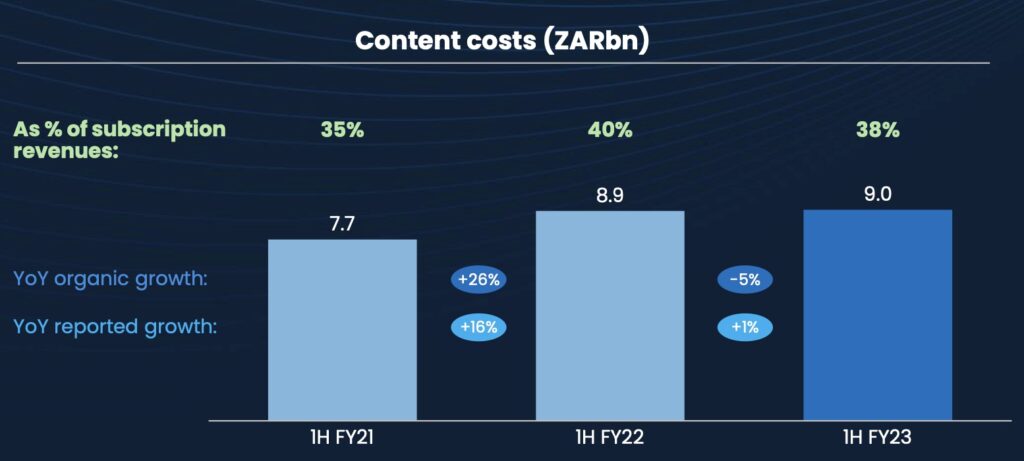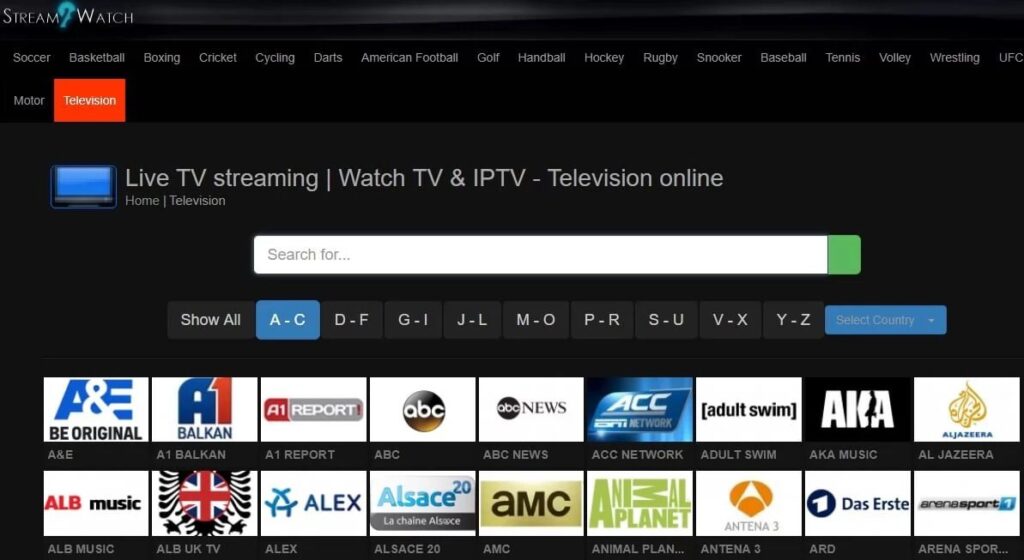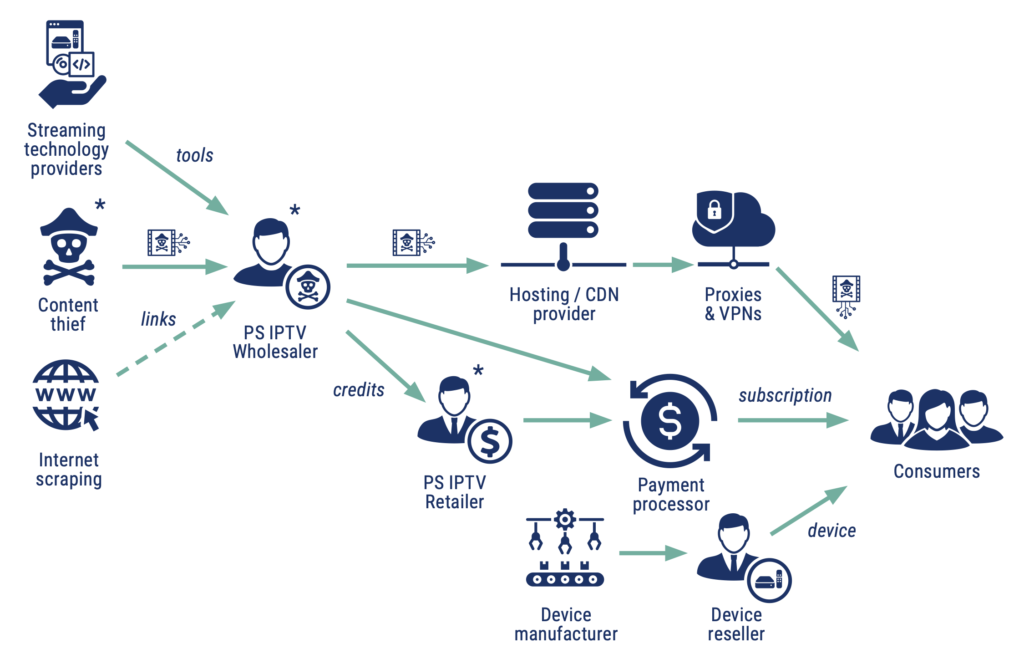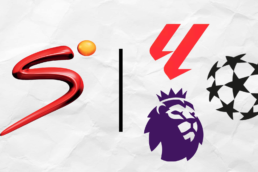As more and more people turn to online platforms to watch their favourite sporting events, illegal sports streaming has become a major issue for broadcasters in recent years. These illegal streams not only deprive broadcasters of revenue, but also pose a significant threat to the integrity of the sport itself. Broadcasters are fighting back against illegal sports streaming but is it a battle they can win?
Broadcasters are fighting back and fighting back hard
A study conducted by the Digital Citizens Alliance estimated that illegal streaming costs the sports industry $3.3-billion a year. This figure includes not only lost revenue from advertisers and subscriptions, but also the cost of producing and airing the sports events themselves. Another study, conducted by the Sports Video Group, found that illegal streaming cost the sports industry $1.5-billion in lost revenue in 2018. This study focused specifically on the cost of lost advertising revenue and did not take into account the cost of producing the events or other potential losses.
To understand the impact of illegal sports streaming, it is important to first understand how sports broadcasts make money. Typically, at it’s most basic level, broadcasters pay a fee to the sports league or organisation in exchange for the rights to air the games. This fee is based on a variety of factors, which include the popularity of the sport, the size of the market and the size of the audience. The broadcaster then recoups their investment through advertising revenue and subscription fees for premium services, such as pay-per-view or cable packages. The MultiChoice Group is projected to pay R9 billion for content rights in 2023 with the vast majority of that being sports rights.

However, illegal sports streams disrupt this model by providing unauthorised access to sporting events without paying the necessary fees to the broadcaster. Illegal sports subscription services have evolved to offer unauthorised access to sporting events in exchange for a fee. These services often use Android-enabled TV boxes and sell pirated versions of every sports channel you could ever want for a fraction of the price. One unauthorised service advertises access to pay-per-view events, Premier League football, NBA League Pass, Major League Baseball Extra Innings and much more for $9.95 / R169.95 a month. Another offers 1,400 channels for a monthly payment of no more than $15 / R256.11. Illegal sports subscription services are, however, just one part of the illegal streaming market, with free pirate websites and individual users sharing illegal streams on social media. The overall revenue generated by the illegal streaming market is possibly much larger than the revenue made by illegal sports subscription services alone. There are a few different ways illegal sports streams are distributed.

One common method is through so-called “pirate” websites, which offer unauthorised access to live streams of sporting events. These sites often use deceptive tactics to lure in users, such as misleading domain names or pop-up ads that claim to offer “free” streams. Another way is through social media platforms such as Facebook or Twitter. Users may share links to streams of live games, or even stream the games themselves using their own accounts. This can be particularly difficult for broadcasters to combat as it is much harder to track and shut down individual accounts than it is to take down a dedicated pirate website.
They take advantage of what is called Internet Protocol Television (IPTV) which is the delivery of television content over Internet Protocol (IP) networks. This is in contrast to delivery through traditional terrestrial, satellite, and cable television formats. Unlike downloaded media, IPTV offers the ability to stream the source media continuously.

How Does The Pirate Streaming Ecosystem Work?
The provision of pirated straming content is done through a complex network of players who all provide different services that ultimately lead to the end consumer streaming content illegally.
The content thief begins the process by either crudely recording the content or using sophisticated digital scraping software to acquire live content from legitimate broadcasters and content distributers.
A content wholesaler then sorts through or aggregates content from content thieves and other wholesalers and sells content packages wholesale to subscription retailers and to restreamers. The wholesaler builds and operates the streaming infrastructure and some who are more sophisticated, include a pre-integrated streaming device, for a direct-to-customer plug & play home experience.
The content retailer who operates an online or physical store, sells subscriptions to the IPTV service, with or without a streaming device, either under the wholesaler brand, or will rebrand their service.

So, how are broadcasters fighting back against illegal sports streaming?
One tactic is to work with law enforcement. La Liga and SuperSport, for example, have had some success in combating illegal sports streaming. In 2017, La Liga secured a major victory when it successfully lobbied the Spanish government to pass a new law that gave it the power to request that internet service providers block access to pirate websites that offered illegal streams of its matches.
Since the law went into effect, La Liga has reportedly blocked more than 20,000 illegal streams of its matches. In December 2022, the 6 th Criminal Court of Valencia sentenced the administrator of two websites to 14 months in prison for facilitating illegal access to La Liga matches. In addition, Google and Huawei have both been forced to ban and remove illegal streaming sites from their platforms for broadcasting La Liga matches.
In 2018, SuperSport won a landmark legal case against the operator of a pirate website that offered illegal streams of its events. The court ruled that the operator of the website was guilty of copyright infringement and ordered him to pay damages to SuperSport. In addition to legal action, broadcasters are also using technological measures to combat illegal streams. One such measure is “geo-blocking”, which involves using IP addresses to determine a users location and only allowing access to streams in certain regions. This can be effective in preventing users from accessing unauthorised streams, but it is not fool-proof as users can often bypass these restrictions using virtual private networks (VPNs) or other techniques. Another tactic broadcasters are using is the deployment of “watermarking” technology, which embeds a unique identifier into each stream. This allows broadcasters to track down the source of illegal streams and take action against those responsible.
Over the last few months American authorities have become involved and this has led to one of the biggest single seizures of sports streaming websites to date. In November 2022, hesgoal.com had an estimated 100 million visits as viewers flocked to the site to watch the FIFA World Cup. According to semrush.com, the site was the the 919th most searched site in the world and ranked 268th in England. For many sports viewers, the closure of hesgoal was a devastating loss as the site offered all the top live games of all the top european leagues, domestic football such as South Africa’s Premier Soccer League and other sports including Formula One, Rugby, Tennis and so much more.

Finally, broadcasters are also working to make legitimate streams more accessible and convenient for users. This can involve offering multiple viewing options, such as streaming on multiple devices or providing on-demand access to games after they have aired. By making it easy for users to access legal streams, broadcasters hope to discourage people from turning to illegal options.
Illegal sports streaming is perhaps the greatest threat facing broadcasters today. They hit the revenue and integrity of broadcasts, which can have a knock-on impact on the ability of rights holders to produce a quality product and on sports organisations to sell their product. Broadcasters are fighting back by working with law enforcement, using technological measures, and making legitimate streams more convenient for users. It’s a hard fight on a wide battle field, but broadcasters know how vital it is to win. The question is, can they?
Related Posts
February 20, 2024
World Sports Betting To Sponsor Western Province Cricket Association
World Sports Betting has announced a renewed sponsorship agreement with the…
February 20, 2024
MultiChoice Renews Rights To LALIGA, EPL And Champions League
SuperSport, the leading African sports broadcaster, has made significant…
February 20, 2024
New World TV Secures UEFA Competition Rights For Frech-Speaking Sub-Saharan Africa
New World have secured exclusive rights to broadcast the UEFA Champions League,…



